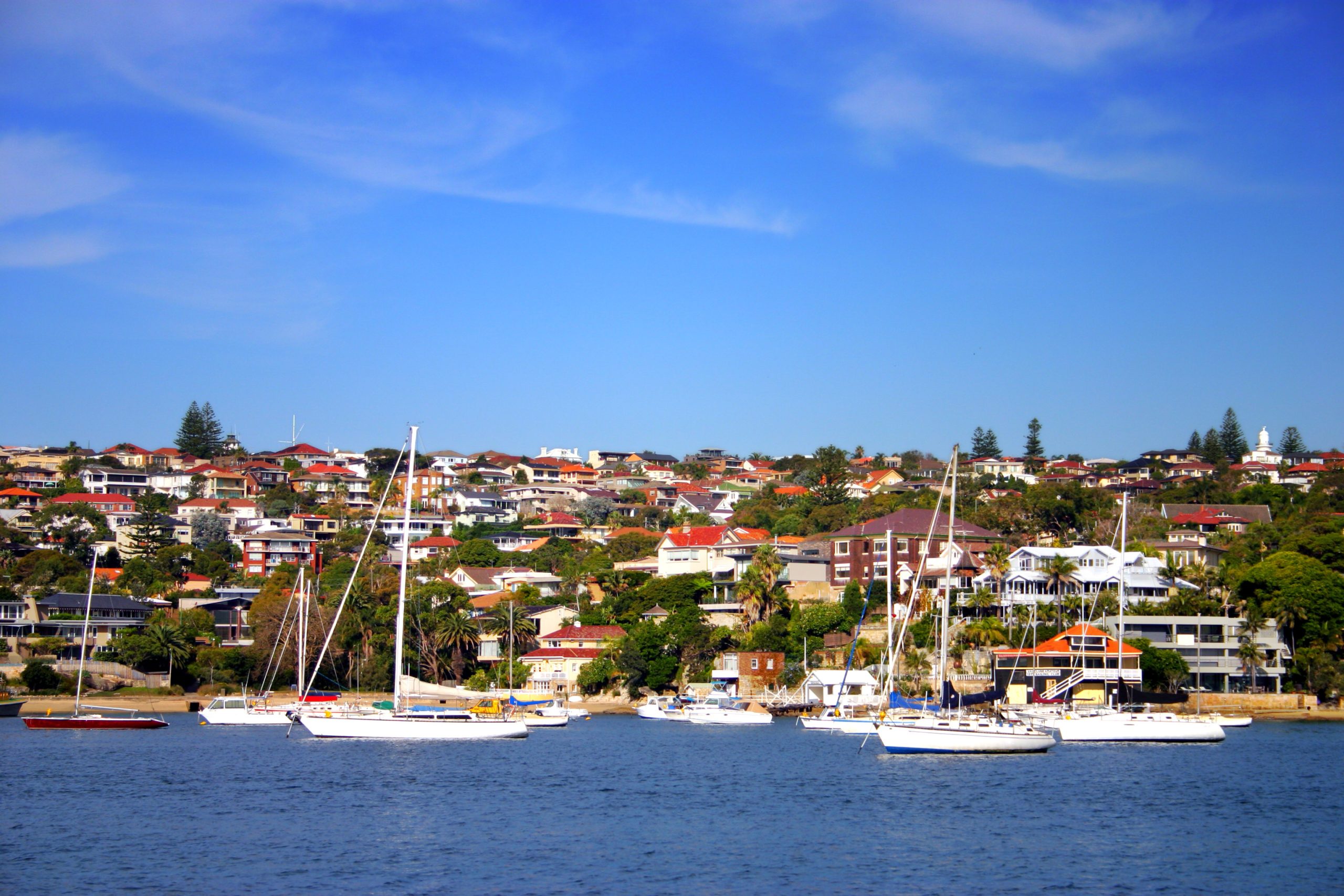Why personal wealth in Australia is rising faster than other nations
We are now the second-wealthiest per capita in the world
The average wealth of Australian adults grew by nearly 10 percent last year, more than double the pace of 56 other countries, and we are now the second-wealthiest per capita in the world, according to the 2024 UBS Global Wealth Report. The median wealth of Australians is now USD$261,805 per person (AUD$387,612). The wealthiest people live in Luxembourg where the average resident is worth USD$372,258 (AUD$551,142).
UBS says the bulk of our rising wealth over the past year has come from gains in property values and superannuation. More than half of our wealth is in ‘non-financial’ or relatively illiquid assets such as bricks and mortar. This is unusual relative to our neighbours in the Asia-Pacific region, where 60 percent of personal wealth is held in shares, bonds, mutual funds and savings accounts.
Australia also has the world’s third-largest population of millionaires. According to UBS, 1,936,114 Australians are millionaires in US dollar terms, which equates to 10 percent of the population. By 2028, UBS forecasts that Australia will have almost 400,000 more millionaires at 2,334,015 people. Of the 56 countries covered in the report, the United States has the most millionaires at 21,951,319 people. This cohort is forecast to expand by almost 3.5 million people to 25,425,792 by 2028.
Property has delivered exceptional capital gains to Australian homeowners since the onset of the pandemic. Sydney home values are 28 percent higher today than they were in early 2020, according to CoreLogic data. Home values in Brisbane, Adelaide and Perth are more than 60 percent higher. In Hobart, property values are 28 percent higher, and in Canberra they are 32 percent higher. Melbourne home values are 11 percent higher.
UBS explains that rising wealth tends to go hand-in-hand with economic development. Since the Global Financial Crisis, wealth has risen fastest in the Asia-Pacific region at nearly 177 percent over 15 years. This has occurred alongside 192 percent growth in debt, however, UBS notes that “it is not uncommon for emerging economies to experience fast growth in credit as the financial system develops and matures”.
While global wealth is steadily rising, it is doing so at a slower pace. There are many reasons for this, including smaller rates of growth as countries become wealthier and their economies mature. Also, countries with aging populations tend to see falling rates of economic activity, which affects both personal and national wealth. Between 2000 and 2010, Australia’s annual compound growth rate in wealth was 15 percent. Between 2010 and 2023, it shrank to four percent. China’s annual growth rate has fallen from 19 percent between 2000 and 2010 to eight percent between 2010 and 2013.
The report also looked at wealth inequality and assigned a score of between zero and 100 to each of the 56 nations. A low score indicated more equality and a high score indicated greater inequality. Australia has an inequality score of 51 now. This is forecast to grow to 54 by 2028. Countries with a similar score include Japan (50), Italy (50), Belgium (51) and Finland (53). Saudi Arabia had the highest wealth inequality score at 89, followed by the United Arab Emirates (88), United States (76) and Sweden (74).
A divide has opened in the tech job market between those with artificial-intelligence skills and everyone else.
A 30-metre masterpiece unveiled in Monaco brings Lamborghini’s supercar drama to the high seas, powered by 7,600 horsepower and unmistakable Italian design.
A divide has opened in the tech job market between those with artificial-intelligence skills and everyone else.
There has rarely, if ever, been so much tech talent available in the job market. Yet many tech companies say good help is hard to find.
What gives?
U.S. colleges more than doubled the number of computer-science degrees awarded from 2013 to 2022, according to federal data. Then came round after round of layoffs at Google, Meta, Amazon, and others.
The Bureau of Labor Statistics predicts businesses will employ 6% fewer computer programmers in 2034 than they did last year.
All of this should, in theory, mean there is an ample supply of eager, capable engineers ready for hire.
But in their feverish pursuit of artificial-intelligence supremacy, employers say there aren’t enough people with the most in-demand skills. The few perceived as AI savants can command multimillion-dollar pay packages. On a second tier of AI savvy, workers can rake in close to $1 million a year .
Landing a job is tough for most everyone else.
Frustrated job seekers contend businesses could expand the AI talent pipeline with a little imagination. The argument is companies should accept that relatively few people have AI-specific experience because the technology is so new. They ought to focus on identifying candidates with transferable skills and let those people learn on the job.
Often, though, companies seem to hold out for dream candidates with deep backgrounds in machine learning. Many AI-related roles go unfilled for weeks or months—or get taken off job boards only to be reposted soon after.
Playing a different game
It is difficult to define what makes an AI all-star, but I’m sorry to report that it’s probably not whatever you’re doing.
Maybe you’re learning how to work more efficiently with the aid of ChatGPT and its robotic brethren. Perhaps you’re taking one of those innumerable AI certificate courses.
You might as well be playing pickup basketball at your local YMCA in hopes of being signed by the Los Angeles Lakers. The AI minds that companies truly covet are almost as rare as professional athletes.
“We’re talking about hundreds of people in the world, at the most,” says Cristóbal Valenzuela, chief executive of Runway, which makes AI image and video tools.
He describes it like this: Picture an AI model as a machine with 1,000 dials. The goal is to train the machine to detect patterns and predict outcomes. To do this, you have to feed it reams of data and know which dials to adjust—and by how much.
The universe of people with the right touch is confined to those with uncanny intuition, genius-level smarts or the foresight (possibly luck) to go into AI many years ago, before it was all the rage.
As a venture-backed startup with about 120 employees, Runway doesn’t necessarily vie with Silicon Valley giants for the AI job market’s version of LeBron James. But when I spoke with Valenzuela recently, his company was advertising base salaries of up to $440,000 for an engineering manager and $490,000 for a director of machine learning.
A job listing like one of these might attract 2,000 applicants in a week, Valenzuela says, and there is a decent chance he won’t pick any of them. A lot of people who claim to be AI literate merely produce “workslop”—generic, low-quality material. He spends a lot of time reading academic journals and browsing GitHub portfolios, and recruiting people whose work impresses him.
In addition to an uncommon skill set, companies trying to win in the hypercompetitive AI arena are scouting for commitment bordering on fanaticism .
Daniel Park is seeking three new members for his nine-person startup. He says he will wait a year or longer if that’s what it takes to fill roles with advertised base salaries of up to $500,000.
He’s looking for “prodigies” willing to work seven days a week. Much of the team lives together in a six-bedroom house in San Francisco.
If this sounds like a lonely existence, Park’s team members may be able to solve their own problem. His company, Pickle, aims to develop personalised AI companions akin to Tony Stark’s Jarvis in “Iron Man.”
Overlooked
James Strawn wasn’t an AI early adopter, and the father of two teenagers doesn’t want to sacrifice his personal life for a job. He is beginning to wonder whether there is still a place for people like him in the tech sector.
He was laid off over the summer after 25 years at Adobe , where he was a senior software quality-assurance engineer. Strawn, 55, started as a contractor and recalls his hiring as a leap of faith by the company.
He had been an artist and graphic designer. The managers who interviewed him figured he could use that background to help make Illustrator and other Adobe software more user-friendly.
Looking for work now, he doesn’t see the same willingness by companies to take a chance on someone whose résumé isn’t a perfect match to the job description. He’s had one interview since his layoff.
“I always thought my years of experience at a high-profile company would at least be enough to get me interviews where I could explain how I could contribute,” says Strawn, who is taking foundational AI courses. “It’s just not like that.”
The trouble for people starting out in AI—whether recent grads or job switchers like Strawn—is that companies see them as a dime a dozen.
“There’s this AI arms race, and the fact of the matter is entry-level people aren’t going to help you win it,” says Matt Massucci, CEO of the tech recruiting firm Hirewell. “There’s this concept of the 10x engineer—the one engineer who can do the work of 10. That’s what companies are really leaning into and paying for.”
He adds that companies can automate some low-level engineering tasks, which frees up more money to throw at high-end talent.
It’s a dynamic that creates a few handsomely paid haves and a lot more have-nots.
From Italy’s $93,000-a-night villas to a $20,000 Bowral château, a new global ranking showcases the priciest Airbnbs available in 2026.
Now complete, Ophora at Tallawong offers luxury finishes, 10-year defect insurance and standout value from $475,000.



















